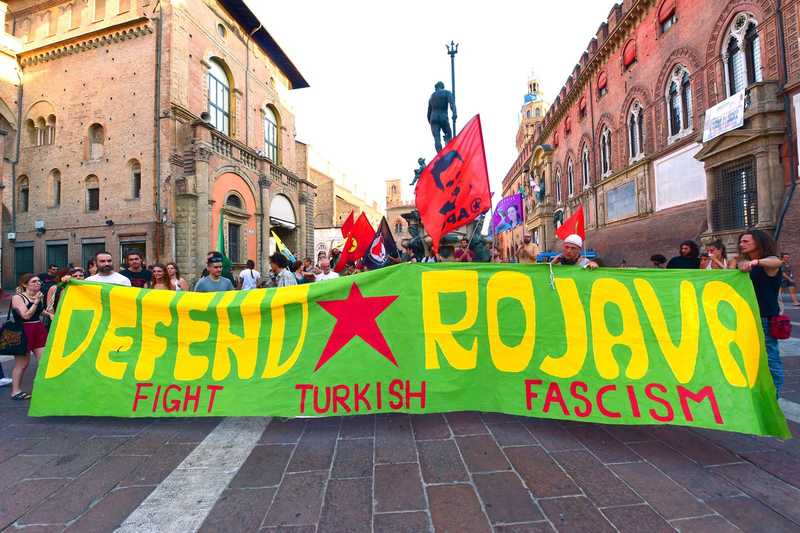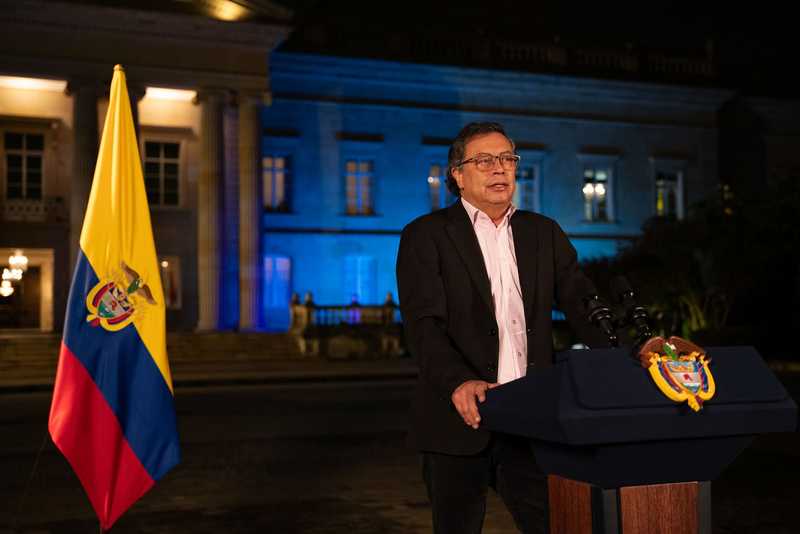The declaration released at the conclusion of the Tegucigalpa Forum included commitments to:
- Constitute the International Movement for Honduras in Resistance: To convene allies from across the world to contribute to present struggle for the democratic refoundation of Honduras;
- Accompany Honduras in the Presidency Pro-Tempore of CELAC: To support the government of President Xiomara Castro to seize the opportunity of its 2024 CELAC Presidency to forge a new agenda for Latin American sovereignty;
- Spread the Spirit of Resistance Across the World: To learn from the example of President Xiomara Castro’s ‘Government in Resistance’, and to sustain the international dialogue initiated here in the days, months, and years to come.
Read the declaration in full here.
Setting the context for the Tegucigalpa forum, the co-General Coordinators of the Progressive International said:
Varsha Gandikota-Nellutla: “A 100 years ago, the United Fruit company reached the shores of Honduras, billed itself a credible partner for development, and took over land and infrastructure, eventually controlling almost all railways, hospitals, ports, and telegraph lines — acting, in short, like a ZEDE.
”That United States corporation turned the countries of Central America into ‘banana republics’ and the its citizens into plantation workers. If the traditional colonizers spilt blood for bananas, the new-age Silicon valley colonizers, it seems, do it for bitcoin. The real scandal with Honduras’s fight against the ZEDEs is in fact, this — the near unbroken chain of corporate colonialism.”
David Adler: “In truth, the ZEDEs were born — and continue to operate — only with the power of United States. In the first place, through the US support for the coup: it was with the stamp of US approval that the ZEDEs law first came about — a clear violation of Honduran sovereignty.
“Second, through the US support for the corporations: Today, powerful members of the US government have been calling for action to avenge the ‘expropriation or actions of the Honduran government’ relative to US investments.
“Third, through the US infrastructure of free trade agreements that grant investors the right to pursue claims against the democratic decisions of foreign governments.”
Gerardo Torres, Subsecretary for Foreign Affairs in the Government of Honduras added: “When we have corporations without any control — the result is what happened here in Honduras. Such a system concentrates enormous amounts of wealth in few hands, to the detriment of the population. It is no coincidence that in Honduras, there are a small number of unscrupulously wealthy multi-millionaires while 75% of the population live poverty.”
The high-level delegation made expert contributions in five critical areas:
1. ZEDEs, Zones of Employment and Economic Development
- Luisa Connor, President of the Crawfish Rock Community Governing Council presented testimony from the island of Roatán*,* “In 2020, when we realized that the ZEDE was going to arrive in our community, we began to investigate and find out as much as we could about what the word ZEDE meant. We were not consulted, as English-speaking black people in the community. The ILO convention states that we must be consulted and informed. At no time were we consulted, and we did not know how to fight it. We had to investigate pathways for ourselves, calling friends who do know about such struggles to guide us.”
2. The “Investor-State Dispute Settlement” Regime
- Ladan Mehranvar, Senior Legal Researcher, Columbia Center on Sustainable Investment: “The general view among many scholars, civil society organizations, and most governments around the world is that the ISDS is a mess, a deeply flawed system that one famous investment lawyer in the US has famously referred to as the ‘Wild, Wild West’ of international law and practice. The ‘promise’ was that with these treaties, investment flows would increase to the Global South countries in need of investments – well, decades later, the evidence for this link is inconclusive.”
- Andres Arauz, Economist, Former Minister of Knowledge and Human Talent and former Director General of the Central Bank of Ecuador: “It is a transnational privatization of justice. It is not a balanced system between the two parties because states cannot prosecute companies. The system only allows transnational corporations to prosecute states and not vice versa. Only they can prosecute states; states cannot prosecute companies even if they have committed an illegality. Therefore, by definition the state cannot win. At most, we don't lose. It is an absolutely perverse system, devised to guarantee the privatization of all our public assets, such as health and education.”
- Guillaume Long, Policy Analyst, Center for Economic and Policy Research; Former Foreign Minister, Ecuador: “There is a big opportunity to demonstrate to the world that Honduras is not just one more [ISDS] case. It is the most emblematic case of the corporate colonialism represented by the ZEDEs and international arbitration system. In any conversation with the Europeans, in any conversation with the Americans, in any conversation with the international community, in all multilateral spaces, we must insist that Honduras is today the first trench of this fight, which is the most obvious case of corporate abuse and the abuse of these arbitration mechanisms in a world where opinions are changing.”
3. The role of the United States
- Melinda St. Louis, Director of Global Trade Watch, Public Citizen: “Ever since the US government, working on behalf of big business, began to include these dispute resolution rules we have sounded the alarm about how the extreme corporate rights they award and can be used by unscrupulous multinational companies as another colonialist tool to intimidate governments, especially in the global south and loot their treasures.”
- Alex Main, International Policy Director, CEPR: “Today, former US ally Juan Orlando Hernández sits in jail after being convicted of drug and arms trafficking. But Honduras continues to suffer the consequences of Hernández’ long US-backed reign. It’s time for Washington to start repairing the damage it contributed to while, at the same time, following through with its new policy vision regarding ISDS. For starters, the US administration should make clear that it is no way supportive of the ZEDEs and respects the sovereign decision of the Honduran people to do away with them. Further, it should launch a process of dialogue with Honduras and other Central American governments to remove ISDS from the CAFTA agreement.”
4. Sovereignty for the South
- Ramon Barrios, Deputy of the Freedom and Refoundation Party: “Fortunately today, the government of President Xiomara Castro, the Libertad y Refundación party, our bench in the National Congress, understand very well what the principle of sovereignty represents. This new form of government that the president represents understands very well that Sovereignty is not represented by the current political class, it is not represented by the State as such, this government understands that sovereignty is represented by citizens like Luisa Connor.”
- Jose Miguel Ahumada, Former Undersecretary of International Economic Relations, Chile: “On the one hand, a group of regions [the supposedly ‘developed’ regions] are seeking to reform these dispute resolution mechanisms and apply industrial policies in order to increase the productive capacities of their territories. And on the other hand, in our region one of the problems we have is that we continue to have the type of trade agreements that considerably restrict the possibility of implementing the productive development policies we need so urgently in the region today."
5. Collective Action
- Andres Arauz, Economist, Former Minister of Knowledge and Human Talent and former Director General of the Central Bank of Ecuador: “Our only way to surpass them in strategy and intelligence is to act in coordination, in solidarity. We must make the most of the wealth of knowledge that exists among the countries that have already fought this fight; as well as that of other countries who are fighting it right now, perhaps unaware that they share exactly the same situation as the Honduran people and the Honduran State at this moment. That is why we have spoken, that is why we are here, that is why the Progressive International is present - because it is time to take coordinated action.”
- Christian Pino, Former Executive Secretary of CAITISA (Commission for the Audit of Investment Protection Treaties): "The Ecuadorian government wanted to take control of its oil resources. In 2002-03, we were on the list of the most in-demand countries in the system. It is in this context that, the Citizen Audit Commission [CAITISA] was created. What I believe and consider that we have to do is coordinate actions against bilateral investment treaties. BITs can be terminated, they can be re-interpreted, or some specific clauses can be eliminated, such as the arbitration clause, which would result in the bilateral investment protection treaty being left without the strongest tool it has at its disposal to cause damage to more countries.”




